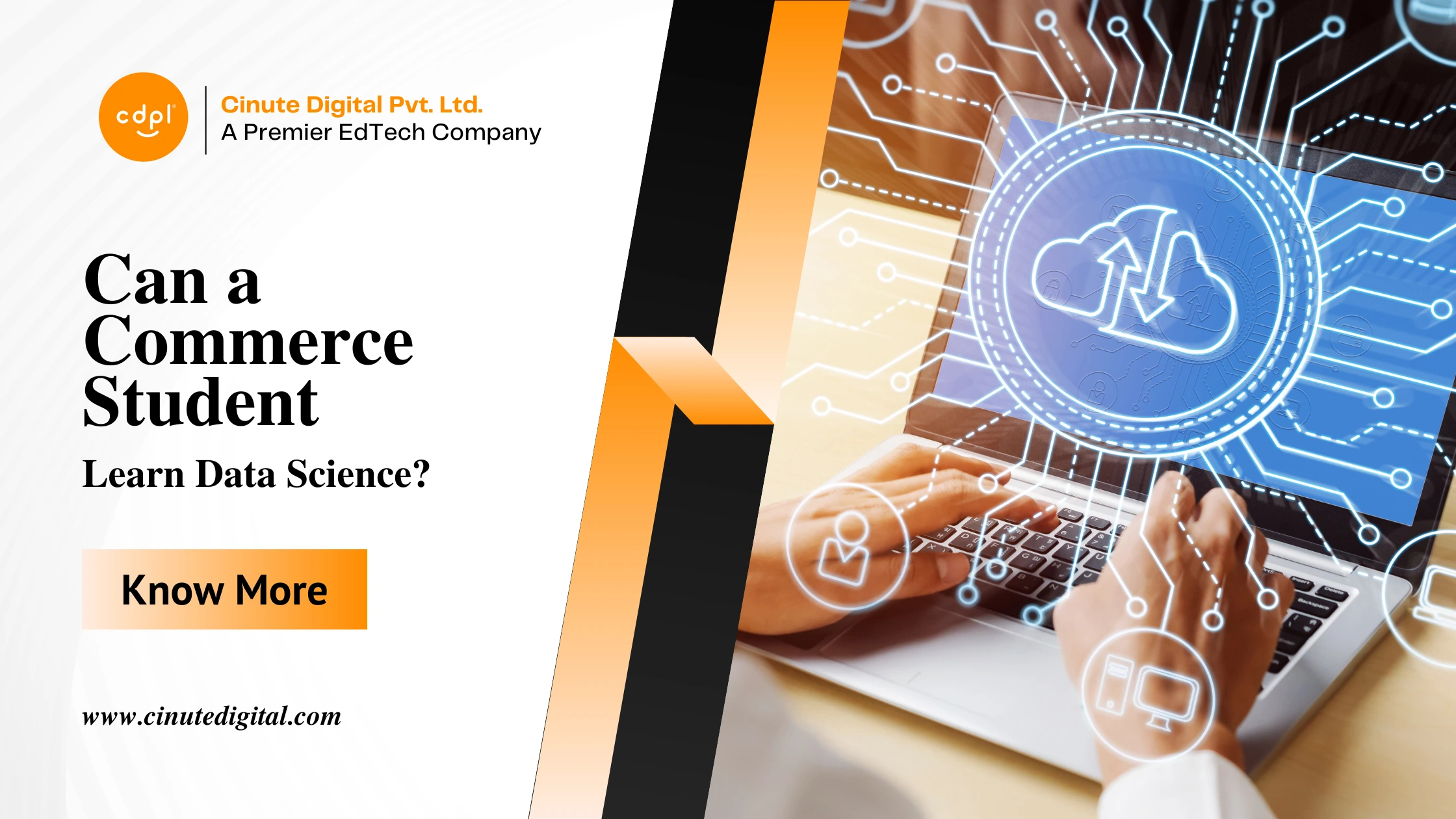 Can a commerce student learn data science?
Can a commerce student learn data science?
It’s a question asked by thousands of learners every month, and it’s not just valid, it’s necessary. For decades, data and programming careers were considered “reserved” for engineers and science graduates. But that’s changing, fast.
In 2025, your degree doesn’t limit your career, your mindset does. Data science is about solving problems using logic, numbers, and tools, not about memorizing formulas or being a math genius. At Cinute Digital, we've helped B.Com, BBA, and Arts students break into data roles confidently because they approached it with curiosity, consistency, and support.
Let’s explore how you can make the same journey, from commerce to code, from Excel to ML.
New to data science? Begin with our Complete Guide to Data Science Career & Skills
Table of Contents
- Why This Question Matters
- Is a Tech Background Required to Learn Data Science?
- What Commerce Students Already Bring to the Table
- Which Skills Do You Need to Learn?
- Real-Life Example: Commerce to Data Science
- Recommended Learning Path for Commerce Background
- Career Opportunities After Completing a Course
- FAQs for Commerce Students Learning Data Science
- Conclusion
Is a Tech Background Required to Learn Data Science?
No. It’s a myth.
While some roles may prefer computer science backgrounds, many data science jobs, especially at the junior level, are open to anyone who can work with data, tools, and logic.
What matters more than your degree is: - Your understanding of the business domain (which most commerce students already have) - Your ability to work with tools like Excel, SQL, and Power BI - Your willingness to learn Python, statistics, and data analysis techniques
You don’t need to know everything about AI to get started. You need a structured learning roadmap.
What Commerce Students Already Bring to the Table
Many of the foundational qualities required for success in data analysis, reporting, and BI roles are already part of your academic training and mindset. From working with spreadsheets to interpreting business trends, commerce students bring valuable skills that can be directly applied in the world of data science.
Don’t underestimate what you already know.
Most commerce students have a head start when it comes to: - Working with Excel and tabular data - Understanding business processes, KPIs, and metrics - Interpreting financial statements, reports, and trends - Making decisions based on logic, observation, and reasoning
These are exactly the kinds of skills that data analysts and junior data scientists need. With the right guidance, you can convert your commerce mindset into data science thinking.
Which Skills Do You Need to Learn?
You don’t need to master deep learning or artificial intelligence in your first month. Focus on building foundational skills that will help you land your first job.
Here’s what commerce students should learn first:
| Skill Area | Tools / Concepts |
|---|---|
| Data Analysis | Excel, SQL, Python (Pandas) |
| Visualization | Power BI or Tableau |
| Programming Basics | Python: variables, loops, functions |
| Business Intelligence | KPIs, dashboards, performance trends |
| Statistics | Mean, median, correlation, regression |
| Reporting | Data storytelling, summarizing insights |
Explore the tools here: Best Tools for Data Science in 2025
Real-Life Example: Commerce to Data Science
Neha, a B.Com graduate from Thane, joined Cinute Digital in 2024. She had no coding background, but she was great with Excel and accounting logic.
She started with Python basics, learned to connect Excel files with Pandas, and gradually moved into building dashboards in Power BI. Her first mini project was analyzing sales data for a retail client.
Today, she’s working as a Junior Data Analyst at a logistics company, earning ₹4.2 LPA, and preparing for advanced machine learning concepts.
Her success proves: your degree doesn’t define your potential, your consistency does.
Recommended Learning Path for Commerce Background
We suggest following this sequence:
- Start with tools you know (Excel → Power BI)
- Learn basic SQL to query databases
- Begin Python fundamentals for data manipulation
- Learn to clean, explore, and visualize data
- Move into statistics and machine learning basics
- Work on live capstone projects
- Prepare for interviews + build your LinkedIn profile
Get guided mentorship: Become a Data Scientist in 3 Months
Career Opportunities After Completing a Course
Commerce students can apply for several data-oriented roles after completing a hands-on course:
| Role | Entry-Level Salary Range |
|---|---|
| Junior Data Analyst | ₹3 – ₹5.5 LPA |
| BI Developer | ₹4 – ₹6 LPA |
| Data Visualizer | ₹4 – ₹6.5 LPA |
| Reporting Analyst | ₹3.5 – ₹5 LPA |
Over time, you can specialize further into: - Data Scientist - ML Engineer - Analytics Consultant
FAQs for Commerce Students Learning Data Science
Do I need to know advanced math?
No. Basic statistics is enough to start.
Can I skip coding if I use Excel and Power BI?
You can start without it, but eventually learning Python gives you more career options.
Are companies open to hiring non-tech graduates?
Yes. Many startups and data-driven businesses hire based on skills, not degrees.
How long will it take to become job-ready?
Typically 3–4 months with guided practice and real projects.
Conclusion
Being from commerce is not a barrier, it’s an advantage when entering data science. Your understanding of business, logic, and analysis is already halfway there.
With the right guidance, tools, and projects, you can confidently transition into data roles in just a few months.